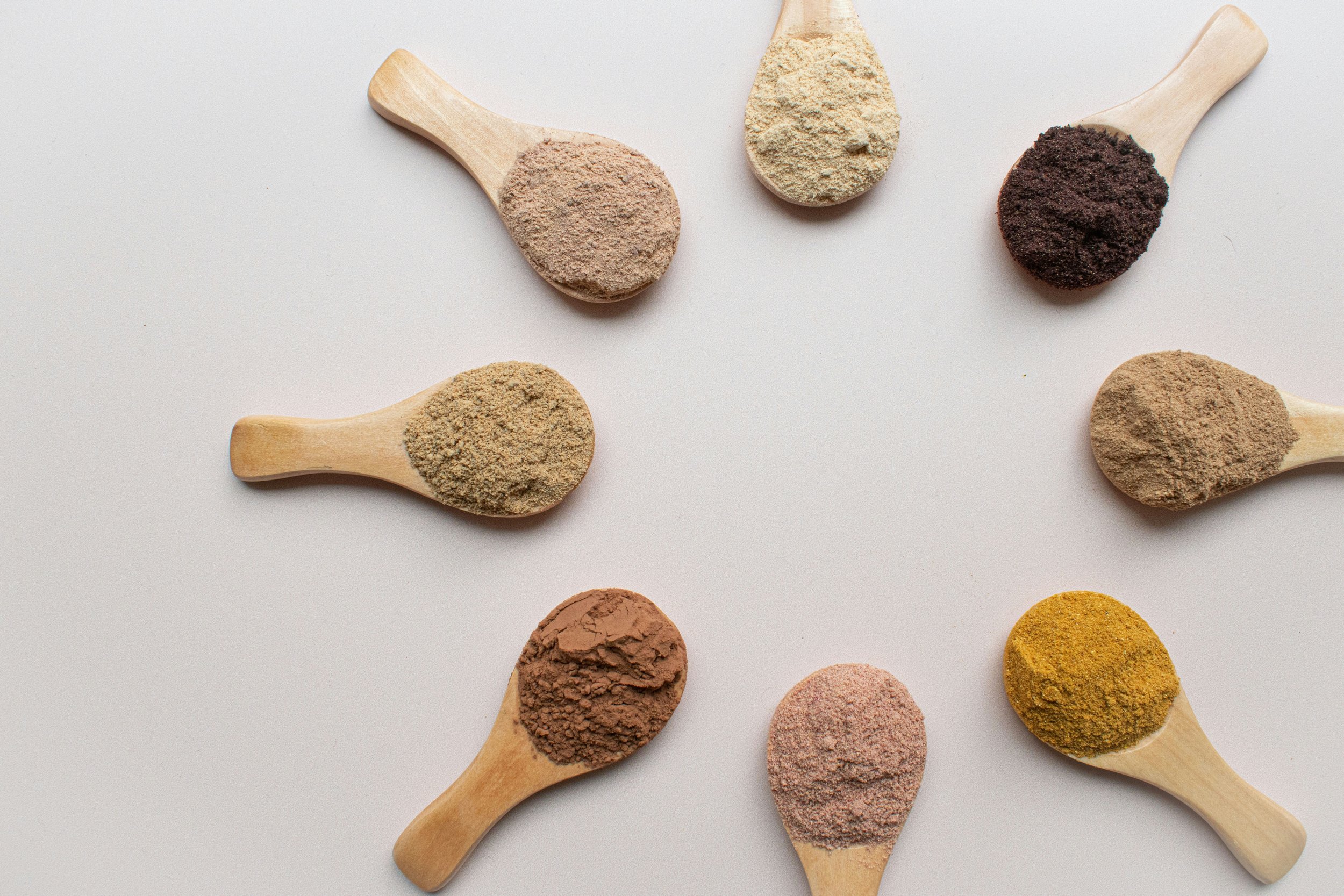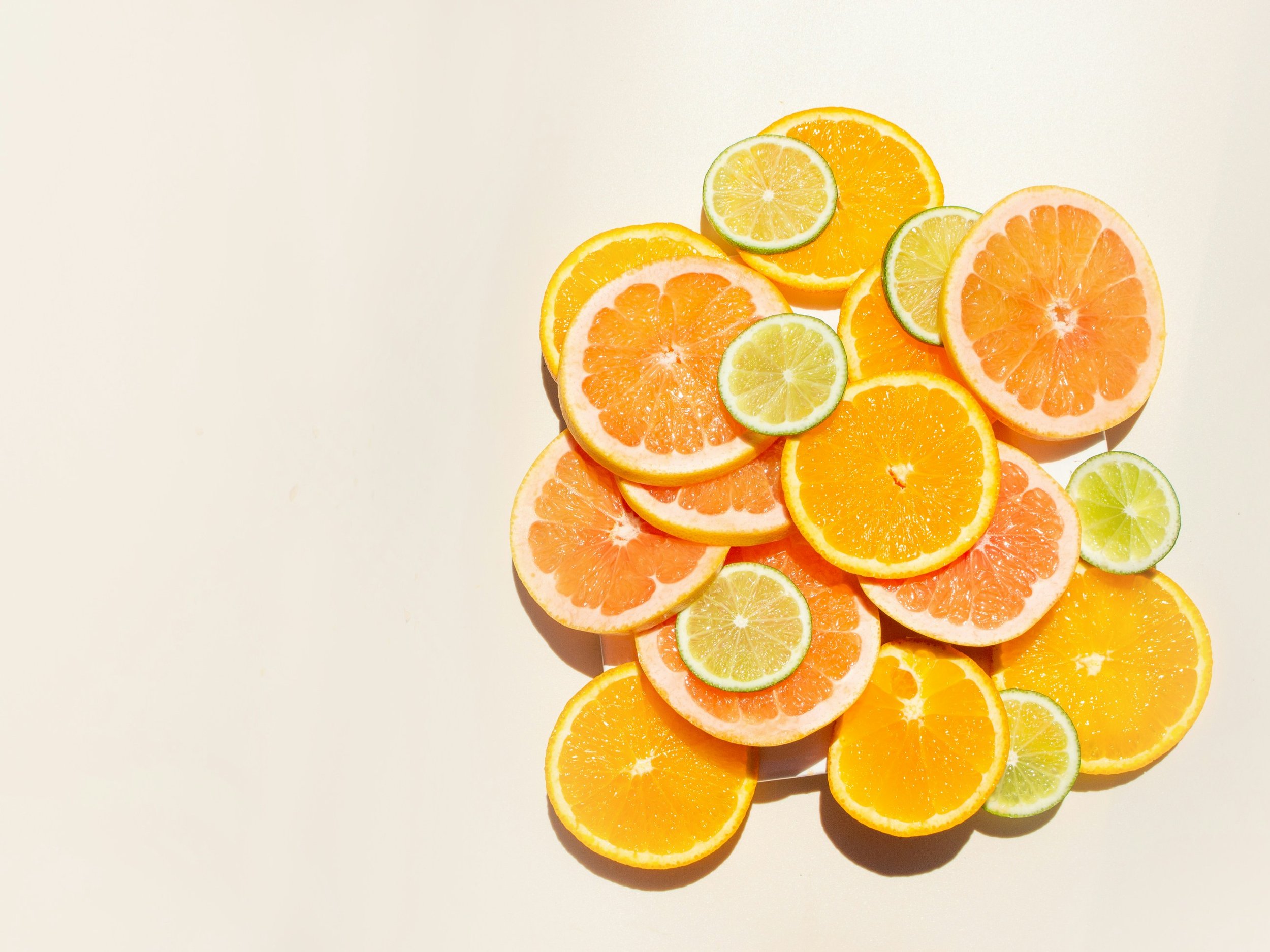Supplementation
To Support Wound Healing
Poor nutrition can seriously hinder and slow the healing of wounds. To properly heal, the body needs the right balance of energy, carbs, proteins, fats, vitamins, and minerals. It's no surprise that not getting enough of these can slow down the healing process.
That's where nutritional therapy comes in – a crucial piece in the puzzle of wound healing. Especially important for chronic wounds and those with conditions like diabetes, it involves ensuring the body gets more of certain nutrients than what's typically recommended daily.

How can supplements help with wound healing and scarring?
Patience is key – there's no quick fix for skin renewal. Time is your skin's best ally, particularly when coupled with a healthy lifestyle. A well-balanced diet rich in protein, fruits, and vegetables contributes significantly to skin healing! But if your diet falls short, don't worry. Supplements have shown to be integral in supporting the skin's healing process.
Vitamins
-
Vitamin A
Vitamin A is crucial for skin and wound healing due to its role in supporting cell growth and repair. It promotes the production of collagen, a key protein in skin structure, and helps regulate immune responses, reducing inflammation. Additionally, Vitamin A aids in the formation of new blood vessels, enhancing blood flow to the wounded area and facilitating faster healing.
-
Vitamin B Complex
Vitamin B Complex is essential for skin and wound healing as it plays a vital role in cell metabolism and the production of energy. Specific B vitamins like B3 (niacin) contribute to the maintenance of healthy skin, aiding in the repair process. B vitamins collectively support the immune system, reducing the risk of infections that could impede wound healing, and also promote the synthesis of collagen, supporting skin structure and resilience.
-
Vitamin C
Vitamin C is important to skin and wound healing as it plays a key role in collagen synthesis, a structural protein vital for skin integrity. It also acts as an antioxidant, protecting the skin from damage caused by free radicals. Vitamin C supports the immune system, helping to fend off infections that could impede the healing process, and contributes to the formation of new blood vessels, promoting efficient blood circulation to aid in wound repair.
-
Vitamin D
Vitamin D is a great tool for skin and wound healing due to its role in promoting cell growth, immune function, and reducing inflammation. It aids in the formation of new skin cells, facilitating the healing process. Vitamin D also helps regulate the immune response, preventing excessive inflammation that could hinder wound recovery.
-
Vitamin E
Vitamin E is valued for its skin and wound-healing properties as it acts as a potent antioxidant, protecting the skin from oxidative stress and damage. It plays a crucial role in supporting cell regeneration and maintaining skin elasticity. Its anti-inflammatory properties can help reduce swelling and enhance the overall healing process. When applied topically or incorporated into the diet, it contributes to healthier skin and facilitates the repair of wounds by promoting tissue regeneration.
-
Vitamin K
Vitamin K is important for skin and wound healing as it plays a key role in blood clotting and proper wound closure. By aiding in the synthesis of certain proteins involved in blood clot formation, Vitamin K helps minimize bleeding and supports the initial stages of wound healing. Additionally, it contributes to the prevention of excessive bruising, promoting a smoother recovery process for damaged skin.

What role do Minerals play in my successful wound healing?
Similar to amino acids and vitamins, certain minerals play specific roles at different points in the wound healing process.
Minerals
-
Amino Acids
Amino acids, particularly Arginine and Glutamine, are crucial for skin and wound healing due to their roles in protein synthesis and immune function. Arginine promotes collagen formation, aiding in tissue repair, while Glutamine supports cell growth and replication. These amino acids also play essential roles in modulating the immune response, helping to fend off infections and promoting a favorable environment for efficient wound healing.
-
Calcium
Calcium is instrumental in skin and wound healing as it is essential for blood clotting, a fundamental step in the initial phases of wound closure. By promoting the formation of a stable blood clot, calcium helps prevent excessive bleeding and sets the stage for subsequent tissue repair. Additionally, calcium plays a role in cell signaling and contributes to the overall structural integrity of the skin, aiding in the restoration process after injury. Ensuring an adequate intake of calcium supports these critical aspects of the healing journey.
-
Copper
Copper is utilized in skin and wound healing due to its role in collagen formation and tissue repair. As a cofactor for enzymes involved in the synthesis of collagen and elastin, copper supports the structural integrity of the skin. It also exhibits anti-inflammatory properties, contributing to a balanced immune response during the healing process. Incorporating copper into skincare or wound care regimens can enhance the body's natural ability to rebuild and restore damaged skin tissues.
-
Iron
Iron is vital for skin and wound healing as it is a key component of hemoglobin, the molecule responsible for transporting oxygen throughout the body. Adequate oxygen supply is crucial for cellular function and tissue repair. Iron also plays a role in collagen synthesis, contributing to the structural integrity of the skin. Ensuring sufficient iron levels promotes optimal wound healing by supporting oxygen delivery to the affected area and facilitating the production of essential proteins for tissue regeneration.
-
Selenium
Selenium is valued in skin and wound healing for its antioxidant properties, which help protect the skin from oxidative damage. As an essential component of selenoproteins, selenium supports the immune system and regulates inflammation, influencing the body's response to wounds. By reducing oxidative stress and promoting a balanced immune reaction, selenium contributes to a favorable environment for efficient skin recovery and wound healing. Incorporating selenium into one's diet or skincare routine supports overall skin health.
-
Zinc
Zinc is useful for skin and wound healing as it plays a critical role in various cellular processes, including cell division and protein synthesis. It promotes the formation of collagen, a key component in skin structure, and accelerates the healing of wounds by aiding in tissue repair. Additionally, zinc possesses anti-inflammatory properties, helping to reduce swelling and support an optimal environment for healing. Whether applied topically or included in the diet, maintaining adequate zinc levels is crucial for supporting the body's natural ability to recover from skin injuries.

